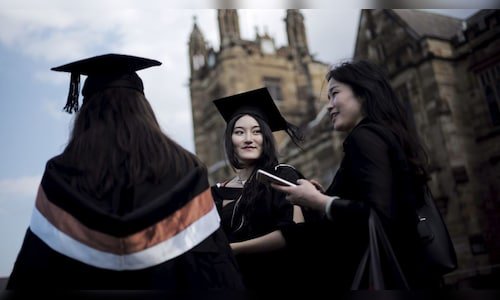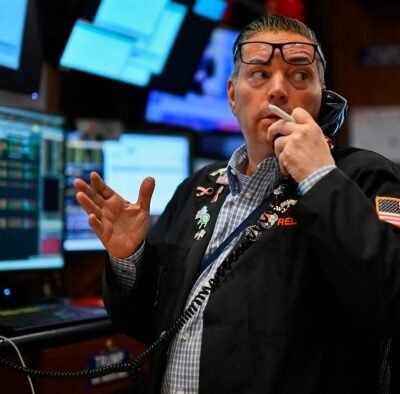Recognising the country’s economic and educational growth ambitions, Kramer emphasised the importance of higher education as a key driver of sustained development.
“The really striking thing that I found since I have been here is the ambition that the country has both with respect to economic growth and education,” he said. He noted that India must continue expanding access to higher education nationwide to achieve its ambitious economic growth targets. LSE and other UK institutions are eager to facilitate this by fostering collaborations and encouraging more Indian students to join its academic programs.
India currently represents the third-largest student population at LSE, and Kramer noted a surge in enrolments during the COVID-19 pandemic, followed by a temporary decline. The numbers are now growing again, and LSE is committed to further increasing its Indian student base. “They are fantastic students. They share the core values of democracy and intellectual learning, and they intermix with our other students,” he said, underlining the cultural and intellectual synergy between Indian students and LSE’s diverse student body.
Kramer also highlighted the potential role of the India-UK Free Trade Agreement (FTA) in fostering stronger educational ties. “Anything that connects the two countries more closely and increases interactions is going to be beneficial in encouraging students to come to the UK and vice versa,” he said. Increased student and professional mobility as part of the FTA could provide more opportunities for cross-border academic exchanges and skill development.
Reflecting on India’s position in the shifting global order, Kramer pointed to the country’s energy and entrepreneurial spirit as key assets in navigating economic and geopolitical challenges. “India is uniquely positioned in the global order, no matter what direction it goes,” he said, adding that its population size and ambitions make it a crucial player in shaping the future world economy.
LSE’s relationship with India dates back to its founding days and remains one of its deepest global ties. “Someone who wrote a history of LSE once described the relationship between India and LSE as a story of soulmates,” Kramer said, reinforcing the institution’s commitment to strengthening this long-standing partnership for mutual benefit.
Edited Transcript from the Interview.
Kramer: The really striking thing that I have found since I have been here is the country has ambition with regard to economic growth and education. I had a wonderful meeting with the finance minister the other day and she sketched out the plans for me. However, to meet these needs, India has to expand significantly the availability of higher education to students across the country.
As it develops, we’ve seen in almost every other country in the world that access to higher education produces a workforce that fuels economic growth up and down the spectrum.
So, to meet a goal of 8% growth per year for many years in a row, the country will need to continue and speed up the plans it has started underway. We can do that by partnerships that we’re already engaged in and eager to engage in with other Indian universities and to get as many Indian students as we can into the London School of Economics (LSE) system. And all of my fellow vice-chancellors in the United Kingdom share that ambition.
Q: LSE gets students from all around the world. Could you tell us what kind of growth you’ve seen in Indian students across different segments and what growth numbers you expect in the coming years?
Kramer: India is, for the LSE, our third largest population and a very, very important one. We saw significant growth during COVID-19, and it dropped after COVID-19 and is now building again.
We’re eager to increase the number of Indian students that we have. They are fantastic students. They’re well-educated when they come. They share the core values of democracy and intellectual learning and intermix with our other students. So, part of what makes LSE so special is that it is a global university with students from typically 150 countries in every class. So, it’s hard to know exactly what the growth will be; that depends on the students on this side, but at the LSE, we’re eager to increase those numbers. One of the reasons I’m here is to speak to counsellors, professors, and others to increase our visibility and people’s sense that it’s worth applying because there’s a chance to get in, and you’ll get a fantastic education.
Q: India and the UK are currently discussing a free trade agreement (FTA). Having greater mobility of students and professionals will also be able to have greater mobility during the FTA talks. How do you think a trade agreement between India and the UK could foster closer education ties? What do you think that could unleash?
Kramer: Anything that connects the two countries more closely and increases the interactions between them will be beneficial in encouraging students to come to the UK and encouraging UK students to go to India because exchanges both ways will be helpful for both countries. So, everything that we can do to increase the interaction – I mean, India is very much going to be central to the future growth of the world at large. In the UK, we recognise that at LSE, it’s one of the reasons we’re so interested in strengthening our ties.
Ties between LSE and India go back to the very beginning of the school. It’s been one of our deepest partnerships. Someone who wrote a history of the LSE once described the relationship between India and the LSE as a story of soulmates. And I think that remains true to date, and it’s that we want to build on and strengthen for the benefit of people in both countries.
Q: Currently, there is, of course, a lot of flux in the global order. Where do you see India’s position in the current volatile global environment?
Kramer: It’s hard to say. Anybody who tells you they know the answer to that has got to be just making things up. With some confidence, India is uniquely positioned in the global order, no matter what direction it goes. The size of the population, the energy and entrepreneurial spirit that runs through the country – one of the striking things on this visit is to see just how much energy there is and the ambitions of the government and the people here. So, that will play out well, no matter where the global order goes. The government certainly will have challenges, as every government will figure out how things will settle in this new order. But it’s hard to think of a country better positioned than India to succeed.





